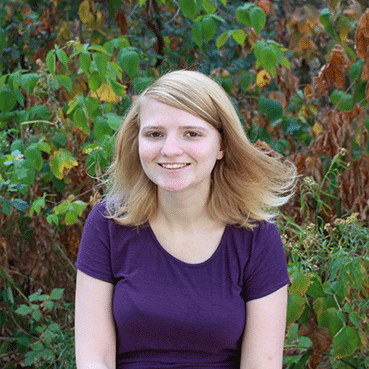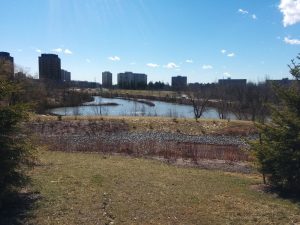 This blog is an archived post written by Eva during her 4th year in the Urban and Regional Environments stream.
This blog is an archived post written by Eva during her 4th year in the Urban and Regional Environments stream.
I have been interested in urban sustainability and ecology since a young age. Because of this, at the end of my second year, I decided to do the Urban Ecologies certificate in order to explore the relationships between the natural and the urban environment. I wanted wanted to study sciences as well as politics. Below are some of my favourite courses I took as part of this certificate:
In the Ecology and Conservation Science (ENVS2420) course, I learned about invasive species, conservation genetics, biological hotspots, freshwater conservation, and species extinction. I decided to write a research paper on the conservation challenges of polar bears, such as climate change. I enjoyed reading case studies on bottleneck wolves, sharks, river turtles, grizzly bears, and woodland caribou.

Stong Pond
In the Urban Ecology (ENVS3740) course, I analyzed the challenges of incorporating ecological factors in urban environments. I particularly enjoyed group work on Stong Pond, York University. We made a video on Stong Pond: Storm Water Management.
In the Political Ecology of Landscape (ENVS4750) course, I became more familiar with the historical issues related to urban environments. I wrote a research paper on the food justice and Maloca Community Garden. Maloca Community Garden is run by students at York University to provide local organic food for students as well as the local communities.
In the Race and Environmental Justice (ENVS3160) course, I had the chance to explore the roots of environmental issues. The topics included agriculture, public housing, water privatization, and factories.
In the Urban Sustainability (ENVS4225) course, we had field trips to downtown Toronto and focused on the condominium boom. We connected the experiences from field trips to the concepts we learned in class, such as privatization, land speculation, gated communities, and compact development. I was fascinated about the ongoing debate on urban sprawl vs compact development.
This Summer, I will be taking a field course called Restoration Ecology (ENVS3230), where I will be able to gain hands on experience by visiting degraded areas in Toronto.
By taking the Urban Ecologies Certificate I gained field work experience, critical thinking, and research skills. The Urban Ecologies Certificate made me more passionate about urban ecologies and provided me with knowledge to pursue a career in the field.

